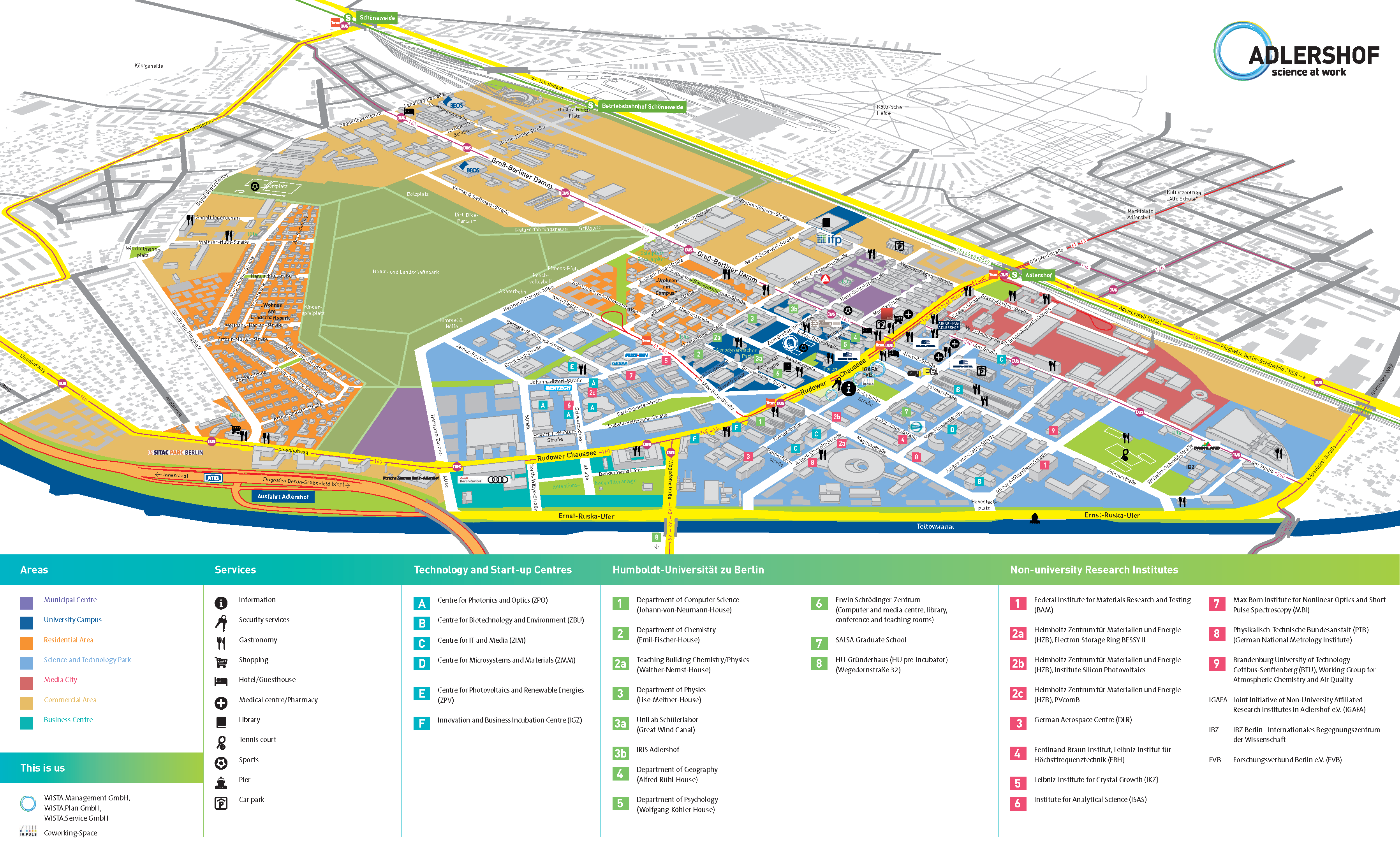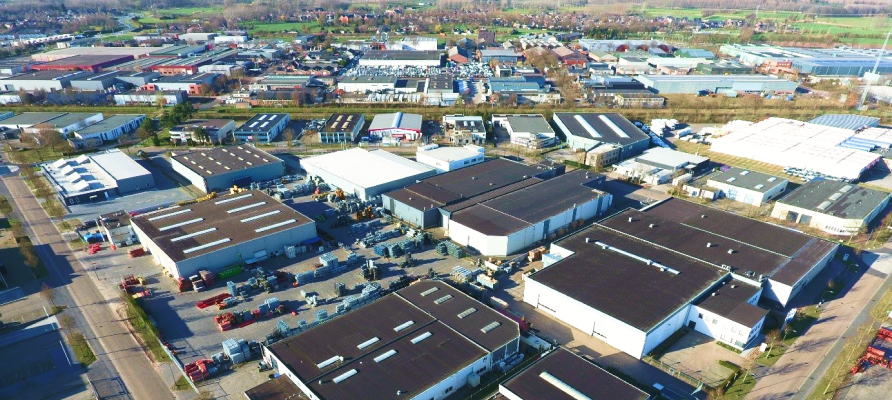
GEAR@SME Use Case – Netherlands
Use Case: Platform Ondernemend Meierijstad
Trusted partner: Platform Ondernemend Meierijstad, Netherlands, Meierijstad
Use Case Operator: CCS Energie-advies, Deventer, Netherlands
The trusted partner for the Dutch use case is POM, Platform Ondernemend Meierijstad (POM). POM is a foundation that represents 900 SMEs within the boundaries of the municipality of Meierijstad. The foundation consists of a collaboration of multiple business associations, ONS (Schijndel), BtB Sint-Oedenrode and EBK (Erp). There are 9 businessparks within the municipality.
Platform Ondernemend Meijereistad (POM) is also the Trusted partner. Currently they are supporting the SMEs by perfoming the collective purchase of energy on the fixed and variable energy market. In addition they also provide administrative services and track the developments in the energy market to keep the SME updated of any changes. POM also provides collective waste management in which the SME pay per kg of waste. By monitoring the waste and tonnage, they give insights into unnecessary wasting of resources.
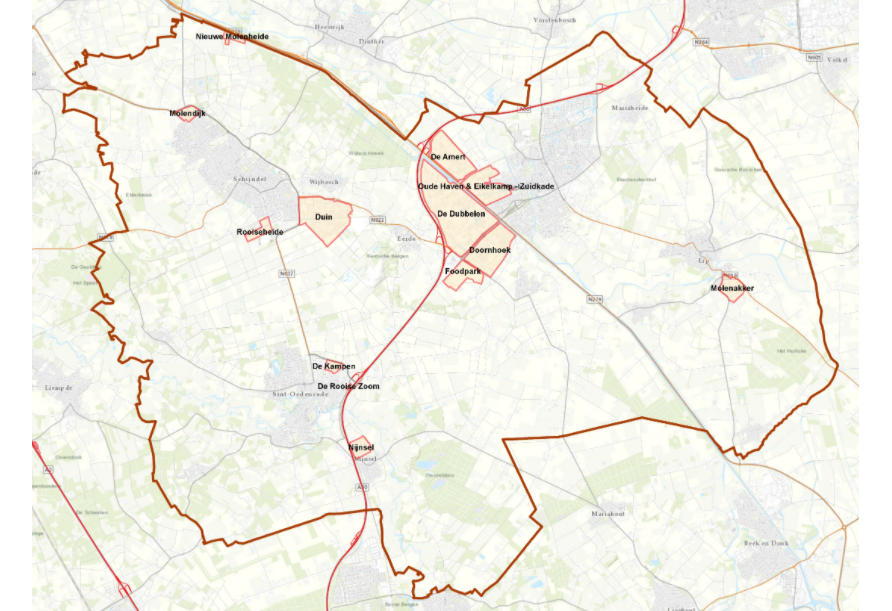
All kinds of sectors are presented within the 900 SMEs but especially the logistics and food sectors are most prominent.
The GEAR@SME partner CCS is supporting POM in reaching SMEs to inform and motivating them to improve their energy efficiency by sharing knowledge and experience with POM so it can perform energy scans and give SMEs the tools to create energy efficiency reports. Furthermore by helping POM to find out the needs of the SMEs, giving trainings on how to motivate SMEs, support in creating a collective.
CCS is also offering free energy scans and aims to have helped 50 SMEs with an energy scan. POM is creating a website with success stories and references of entrepreneurs who have had an energy scan.
DOE (Duurzaam Ondernemend Energiek) was already initiated with POM, the municipality and the Rabobank to collectively work on reducing CO2 emissions by 49% in 2030 at businesses. Supporting SMEs to save energy and generate renewable energy is part of this proposition.
POM has also big plans for sustainability. Apart from energy efficiency, they also initiated projects on hydrogen and an energy-trading platform. They already have an energy service supplier for solar energy and in the past, they have worked with a foundation to stimulate the use of LED-lighting. POM is able to reach a big part of the 900 SME though newsletters, promotional emails and personal contact. They want to inspire other SMEs with success stories through interviews and video is for which they call on Het Communicatie Loket to carry out.
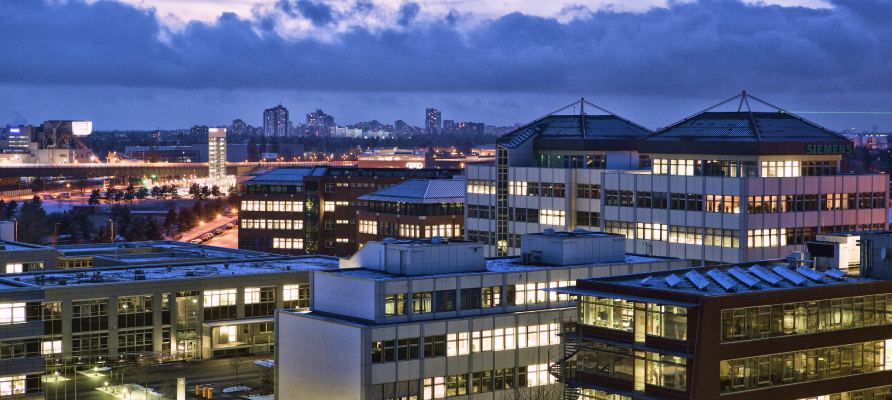
GEAR@SME Use Case – Germany
Use Case: Berlin Adlershof Science City, Germany, Berlin
Trusted partner: WISTA Management GmbH
Use Case Operator: Berliner Energy Agency (BEA) GmbH
Technologiepark Adlershof is a Science and Technology Park located in Berlin. The Trusted partner WISTA Management GmbH will facilitate contact with SMEs and potential multipliers (e.g. the so called “Technologiekreis Adlershof”, an interest group of technology-oriented enterprises in Adlershof).
SMEs interested in participating at GEAR@SME at Adlershof are from the metal processing industry. Also IT enterprises have a lot of energy efficiency potential and have been identified as an interesting target group for the project.
In general, SMEs in Adlershof mostly belong to the following sectors:
- Photonics / Optics
- Biotechnology / Environment
- Microsystems / Materials
- Renewable Energy / Photovoltaics
- IT / Media
BEA will offer at Adlershof workshops and trainings on climate neutrality, energy efficiency, carbon footprints, mobility, photovoltaics and funding opportunities. SMEs can also propose other related topics. SMEs can request a free “energy scan” to get an overview of the situation of their energy use and supply. For more in-depth analysis (e. g. energy audits), the BEA can provide contact to energy service providers.
Additionally, BEA will facilitate networking between SMEs to enable the exchange of knowledge and experiences.
- Public relations work to spread awareness of the project (publishing information about the project in the Adlershof Newsletter, setting up an information booth and distributing information material)
- Individual talks with SMEs (on site in Adlershof if possible), including energy scans
- Workshops
- Trainings
- Networking events
There have been several previous projects in Adlershof promoting energy efficiency that are summarized on this website.This includes the development of concepts to save energy as well as the implementation of concrete measures, e.g. LED lighting and low temperature heating networks. Efforts to inform and advise SMEs about energy efficiency were also part of these previous projects.
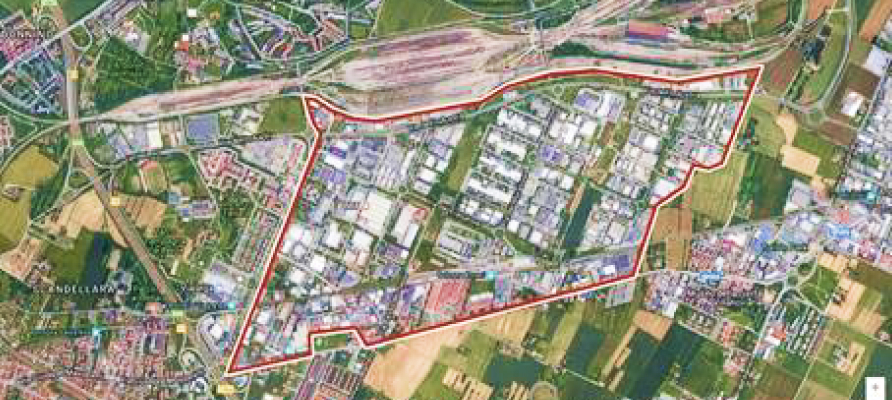
GEAR@SME Use Case – Italy
Use Case: Roveri industrial district, Italy, Bologna
Trusted partner: Confindustria Emilia
Use Case Operator: CertiMaC, ENEA and CNA Ravenna
The Roveri industrial area is a big area (1,998,000 m2) located on the borders of Bologna city centre. It was developed according to a systematic plan. This feature implies that the area has effective access ways and internal roads, green areas, and composition of private and common spaces).
The Roveri area represents a typical local industrial area built in the seventies near the urban areas and now embedded in the city. This kind of areas are called “transition areas”, and they are potentially involved in renovation, requalification, development, or regeneration processes in order to increase the functionality and the attractiveness.
The Trusted partner Confindustria Emilia is a composition of enterprises existing and operating in the Roveri area, that has changed over time. It was exclusively industrial nature at the beginning. Nowadays, the set of enterprises settled in the area is composed of industrial activities (mainly manufacturing and mechanic SMEs), craft activities, services but also commercial, leisure and sports activities.
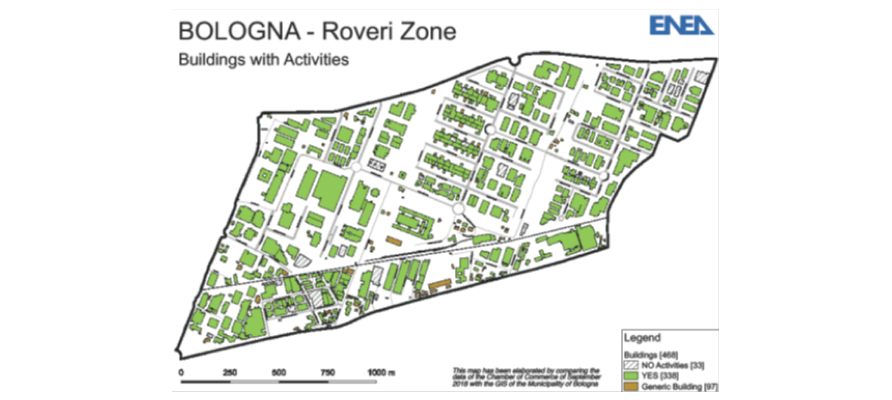
The role of the GEAR@SME partners CertiMaC, ENEA and CNA Ravenna is to assist the Trusted Partner in organising and managing training, provide best practices, provide training to the Trusted Partner and Energy Service Suppliers on tools and non-energy (multiple) benefits, support the Trusted Partner in doing energy scans, develop tools to support TP/SMEs in managing energy efficiency projects, including collective ones. ENEA can provide the TP with training and information on public/private funding.
The Use Case Operators are planning to organize seminars, training events, workshops, networking occasions. Seminars and training events will be aimed at SMEs (for activating them and motivating towards energy efficiency), ESS (to provide them the right knowledge to interact with SMEs) and with the TP (to provide them with the right skills to use the GEAR@SME methodology). They will perform energy scans, again as activation and to generate the required “baseline” data.
The overall expected impacts throughout the duration of the project will be:
- 120 SMEs engaged
- 60 SMEs with increased awareness of their energy consumption and flows within the company
- 13 Energy efficiency projects
- 750 k € investment in energy efficiency projects
Several projects involving academic and research institutions, and trade- and local institutions are ongoing to accelerate the transition process of the area towards a smart sustainable district (“Roveri Smart Village”). These projects, following a collaborative and integrated approach, aim to build a strong network of local enterprises and stakeholders. Moreover, ENEA has already coordinated the SMEs in the Roveri area within the BEST Energy Check-Up3 project with the support of Confindustria, which also supports the GECO (Green Energy Community) project here.
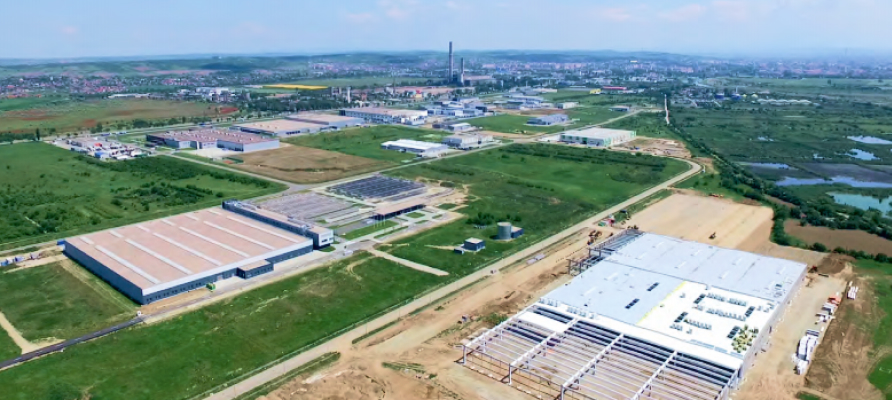
GEAR@SME Use Case – Romania
Use Case: Oradea Industrial Platforms, Romania, Oradea.
Trusted partner: https://www.adlo.ro/
Use Case Operator: Servelect (SVT) and Technical University of Cluj-Napoca (TUCN)
Located in the north-western part of Romania (just 4 km from the Western border), the Oradea Industrial Platforms manage seven Industrial Platforms with a total area larger than 230 ha. They are located in the north-western part of Romania, close to the Hungarian border. The platforms offer good infrastructure, with competitive costs, a skilled labor force, and tailor-made training programs through the dedicated vocational school. The above-mentioned platforms are managed by Oradea Local Development Agency (Agentia de Dezvoltare Locala Oradea – ADLO). The Oradea Industrial Platforms provide a full range of facilities and technical infrastructure, showing flexibility to address business needs and requirements.
The City of Oradea and Oradea Local Development Agency support the long term success strategy by working with companies to develop and implement the most suitable solutions. The region is subject to the European and Romanian Energy Efficiency norms and directives.
Oradea Local Development Agency’s core business is the administration of the industrial parks: investment in infrastructure, maintenance, electricity distribution. ADLO’s mission is to become an important supporter of the Bihor County economic sector, promotor of innovation and partnership between the private, public, and academic sector in order to increase local and regional competitiveness. Moreover, their efforts are concentrated on the relation with the investors providing support for the newcomers for establishing the business in Oradea and Bihor Country and in the relation with public agencies and structures.
There are a large variety of SMEs located in Oradea Industrial Platforms. They evolved from an exclusive industrial platform, in the past, nowadays including SMEs from different sectors: manufacturing, IT, services, craft activities and also academic activities (vocational and technical school).
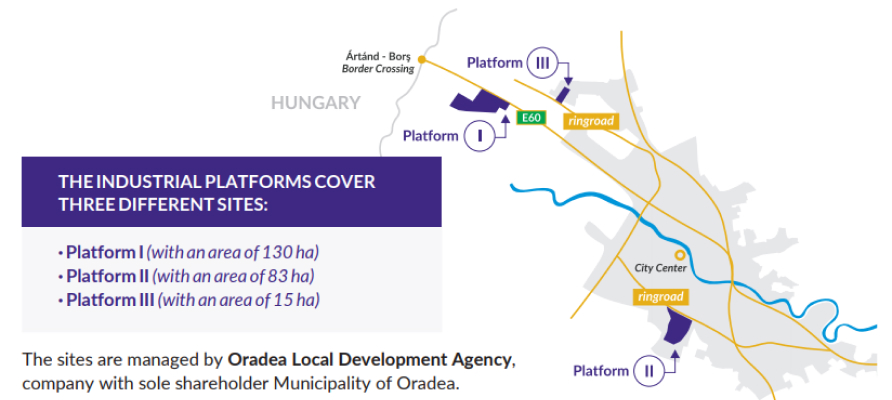
Servelect and TUCN are the GEAR@SME consortium partners involved in the Romanian use case. The first will deal directly with the Trusted Partner (ADLO) and with the SMEs involved in the use cases generating support activities in order to provide a proper energy collective context (based on the proposed methodology). The second will deal with the multiplication of the implemented methodology within the use case by organizing national events in which examples of best practices will be disseminated.
Firstly, together with the TP, the GEAR@SME consortium, Romanian side, partners are preparing a preliminary energy scan procedure that will be applied to each individual SME. The individual approach outcome will constitute the triggering element for the future energy collective. Moreover, for a better understanding of the current situation of the use case, an individual energy profile of each SME will be made. We are confident that the outcome of the energy scan activity will generate requests from the SMEs side for detailed energy audits which in turn will provide the opportunity to implement individual and collective energy efficiency measures and renewable energy sources.
The follow-up events following the energy scans would involve several workshops and training events which will mainly address the identified barriers, problems and possible individual and collective solutions applicable to the targeted SMEs group. However, future activities will be established after the preliminary energy scan outcome is analysed and will also be based on the results of the interviews.
The are several important ongoing projects involving academic and research institutions to accelerate the transition process of the area towards a smart sustainable district and to reach carbon neutrality up to 2050. In this regard, ADLO initiated strong partnerships with the University of Oradea, Technical University of Cluj Napoca. Moreover, as a dedicated source of the skilled labor force for the companies operating in the Oradea Industrial Platforms, the City Hall of Oradea founded in 2013 the Eurobusiness Vocational School, the grounds where private companies and education bodies bind to provide a competitive offer.



